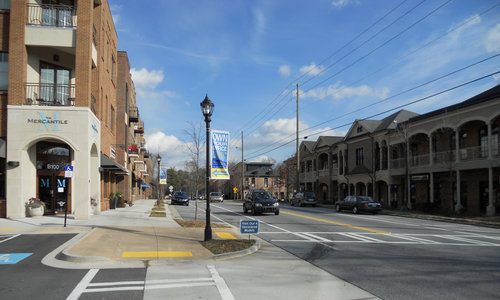
Brookhaven’s city council has approved new zoning regulations that limits short-term rentals, and mandates and incentivizes bringing more workforce housing.
The vote culminates months of work on the new zoning regulations. Figuring out how to regulate short-term rentals, defined as rentals under 30 days, became one of the council’s top priorities. The new regulations now limit short-term rental companies such as Airbnb and VRBO to multiunit buildings and outlaws them for residential neighborhoods.
Brookhaven’s efforts took on an interesting twist since Councilman Joe Gebbia’s son, Joe Gebbia Jr., is a co-founder and chief product officer of Airbnb, the company that put short-term rentals on the map. Gebbia abstained from voting on that portion of the new zoning code.
The city follows the path of many cities around the country that have been trying to regulate the ever-expanding short-term rental business. Brookhaven isn’t alone in Georgia. Sandy Springs approved limits earlier this year, and Savannah last year.
Last year, state legislators started looking at short-term legislation, with State Rep. Matt Dollar of Marietta filing a bill that initially proposed preventing cities from banning short-term rentals and limited their ability to impose regulations. Short-term rentals are expected to be a topic in the new legislature.
Workforce housing, or affordable housing, also has been part of a national discussion as well as in the Atlanta area. Brookhaven’s new code states that when the city approves a special land use permit anywhere in the city or a rezoning for a multiunit residential, 10 percent of the units must meet the affordable guidelines. A developer can get an additional story if 20 percent of the units are set aside for affordable housing.
The income criteria is a family of four with a household income of $59,850, or $41,900 for a single-person household.
“We need more affordable housing,” Brian Benninghoff, an agent with Atlanta Fine Homes Sotheby’s International, said of cities inside the perimeter.
Benninghoff said police and fire personnel, nurses and teachers should be able to live closer to where they work. Many of them working in cities such as Brookhaven, Sandy Springs and Dunwoody now have to live far away.
“Those types of professions living in a neighborhood contribute to the social and financial well-being in the neighborhood,” he said.
